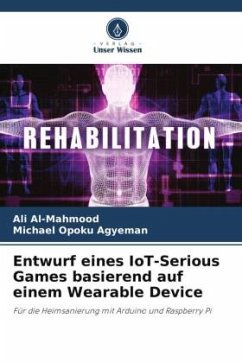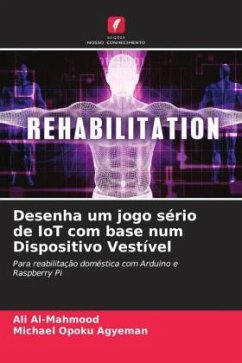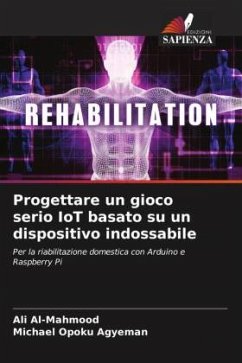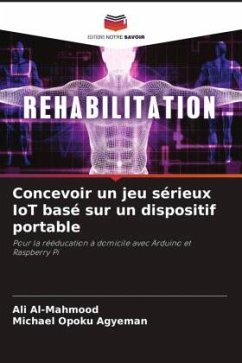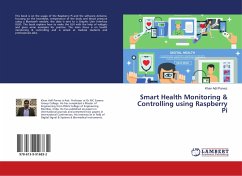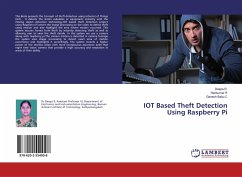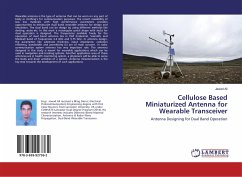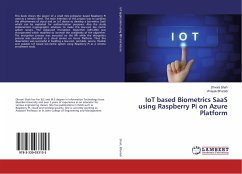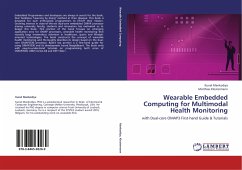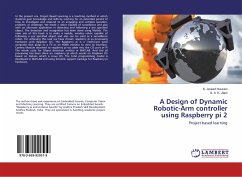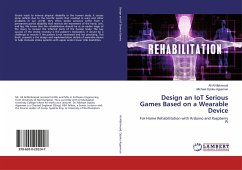
Design an IoT Serious Games Based on a Wearable Device
For Home Rehabilitation with Arduino and Raspberry Pi
Versandkostenfrei!
Versandfertig in 6-10 Tagen
55,99 €
inkl. MwSt.

PAYBACK Punkte
28 °P sammeln!
Stroke leads to intense physical disability in the human body, it causes some deficits due to the horrific events that resulted in wars and other problems in our world. Very often stroke survivors suffer from a permanent partial disability that restricts the movement of the hand, arm, and leg. We know that the rehabilitation should be at an earlier stage of the injury to recover the infected parts of the human body. The key success of the stroke recovery is the patient's motivation, it would be a challenge to recover if the patient is not motivated and not practising. This book, presents a the...
Stroke leads to intense physical disability in the human body, it causes some deficits due to the horrific events that resulted in wars and other problems in our world. Very often stroke survivors suffer from a permanent partial disability that restricts the movement of the hand, arm, and leg. We know that the rehabilitation should be at an earlier stage of the injury to recover the infected parts of the human body. The key success of the stroke recovery is the patient's motivation, it would be a challenge to recover if the patient is not motivated and not practising. This book, presents a the design and implementation details of wearable device to help motivate stroke patients with upper and/or lower limb disabilities.



